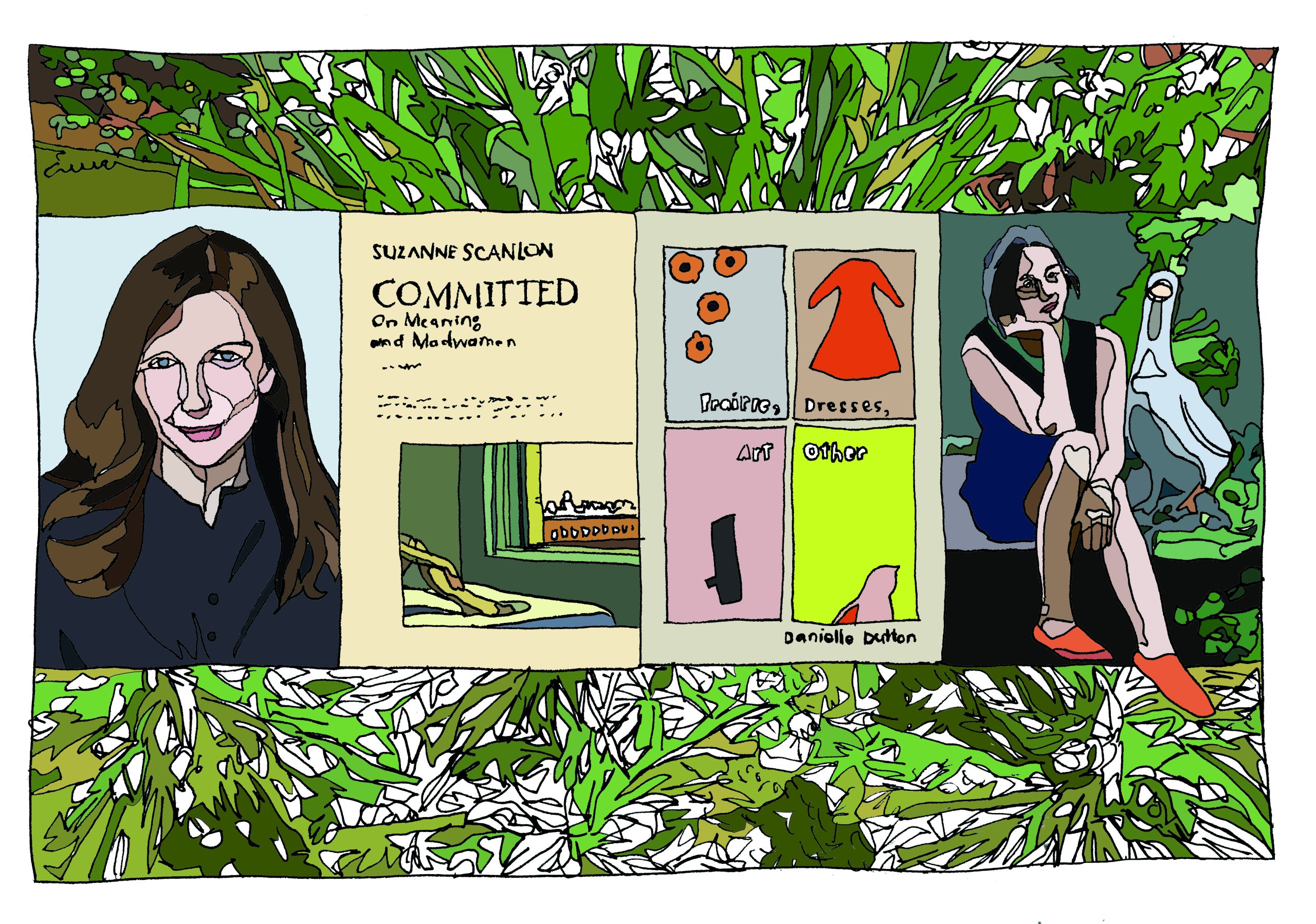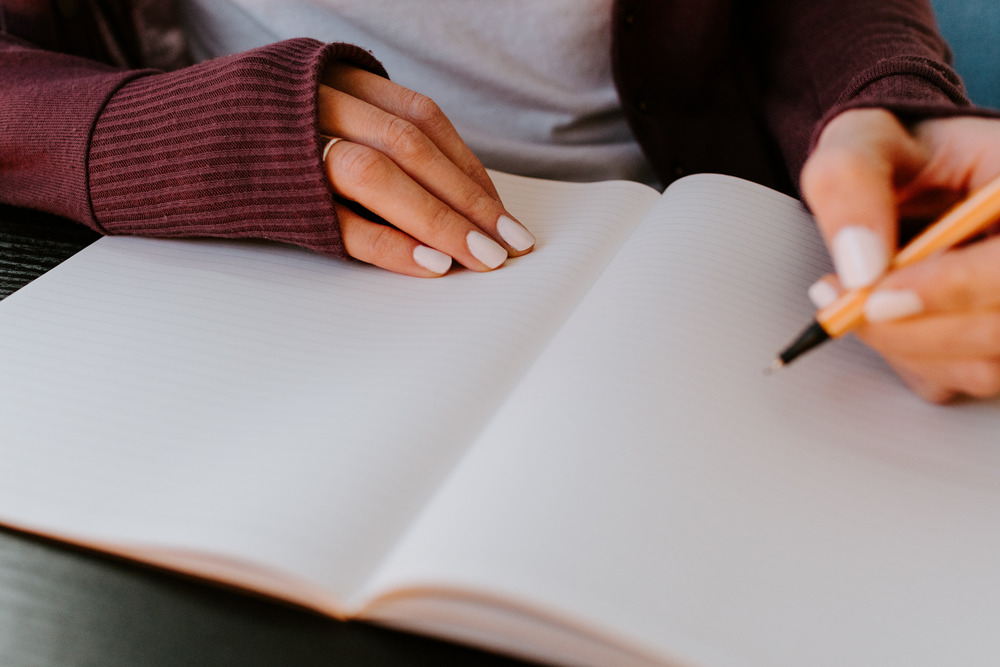Advice
How Do I Become One of Those Writers Who Remember Everything?
Everyone else seems to remember every detail, but I can’t remember the beginning of this sentence

The Blunt Instrument is an advice column for writers. If you need tough advice for a writing problem, send your question to blunt@electricliterature.com.
Dear Blunt Instrument,
I’m 24 and my memory stinks!
Besides being a social burden I’m finding it to be a problem in my reading and writing. Facts/lines of poems/details of plot smear in my head, and often I find myself left with impressions of texts that are far too vague for me to build opinion around. Reading non-fiction or heavily referential fiction feels near pointless as things go in one ear and out the other. Marginalia helps, but I get most of my books from the public library and I don’t wanna be a defacer.

And all this wouldn’t be all that horrible if it also didn’t also affect my writing. I find myself often losing the goal of a paragraph in the middle of it, dawdling. It seems as if the writers I admire — Teju Cole, James Joyce, William H. Gass — all have this ability to recall detail (both read and lived) that, more and more, I feel I lack. And it wasn’t always like this, I swear. (I had a concussion just over a year ago, so for a bit I was worried it might be that. But after a couple neurology appointments and some CT scans this was, seemingly, proved not to be the case.)
Have you/people you know experienced this and defeated it? Are my fears misplaced or disproportionate? Is there some kind of training? How do you read to remember?
Sincerely,
Foggy Noodle

Dear Foggy,
The answer is yes, there is training. There is training for almost everything! I think we often assume that other people’s learned skills must be innate talents. I know a lot about perfume and a fair amount about wine, so people are always saying to me, Your sense of smell/taste must be really good. And they are, kind of, but I wasn’t born with some kind of sensory superpower; I was interested in smells and tastes, so I started paying attention, then looked for corroboration of what I noticed. By smelling a lot, and reading about smells, you can learn to have a good nose, and I think you can learn to have a better memory.
The first thing you need to do is stop relying on your brain alone for retention. You must become an obsessive note-taker. Buy small notebooks — find a kind you like, so it’s a bit of a treat — and carry one with you everywhere. Read Joan Didion or Susan Sontag (or me!) on the art of note-taking, and take up the habit. You don’t have to remember everything if you write everything down. The act of writing is a memory aid on its own. Then find a schedule for revisiting your notes, for rereading your notebooks. Reading what you’ve written reinforces the memory — it’s like studying a cribsheet. If you do this regularly, even passing thoughts have a better chance of solidifying in your consciousness and becoming real memories.
The first thing you need to do is stop relying on your brain alone for retention. You must become an obsessive note-taker.
In the past few years, I’ve started taking extensive notes not just from life but from my books. When I own a book I dog-ear and write all over it — it’s almost like I can’t focus on reading if I’m not holding a pencil. But I also take my marginalia outside the book — I’ll create a document on my computer where I can type up notes from the book, both direct quotations (always note the page number) and any thoughts or impressions the book inspires. This makes it so much easier to write about it later, if you should feel moved to. Even if you don’t remember where you read some line or fact that impressed you at the time, you can search your computer for a word or phrase associated with that idea, and you’ll be able to dig it up and “remember” (thanks to your documentation!) where you found it originally. (Take notes with your future, forgetful self in mind — give yourself as much context as possible, like creating a map for buried treasure.)
The great thing about this external notes system is that you can use it for library books too. I commend you for frequenting the library (libraries are one of my great loves!), but remember that you can use library books as a testing ground. They’re free and low (or no) commitment, so check out tons of books. Instead of vandalizing them, use sticky tabs/flags. But if you find a book you really love there, and you think you’ll want to return to it and reference it in your writing, buy the book. Books are worth a lot more than they cost over time in terms of their value to you as a writer — it’s a gift to have a library at home — so make room in your budget for the expense of books. (Painters need paint to make their art; writers need books.)
You’ve said that your memory is getting worse. I know you’re only 24, but sadly I do think memory gets worse with age. I used to resent it when someone I had met before evidently could not remember my name or that we’d met; I always suspected they were faking it. But as I’ve gotten older, I’ve gone to the other side. It’s much harder for me to remember details about people I’ve met just once or twice or, god, even three times. I often forget life stuff about close friends, too, like where they went to college or what their job is or (gasp) what they named their new baby. It actually feels like my database is full. I don’t say that to scare you — I’m just saying you might as well start developing strategies now to compensate for the feeble human brain.
Memory gets worse with age. You might as well start developing strategies now to compensate for the feeble human brain.
I do want to note that when you think of yourself as having a bad memory, it may feel like an all or nothing quality, like other writers have good memories and you don’t. But outside of people like Marilu Henner, who I once heard is one of only six (?!) confirmed cases who can remember essentially everything in microscopic detail about their own lives, it’s generally more complicated. There are many kinds of memory, and most people are better at some kinds and worse at others. My husband has a knack for memorization; he can easily memorize poems and knows many Shakespeare passages by heart. I have trouble remembering even my favorite poems, and while I can memorize stuff if I have to (I’ve been in plays, for example), I forget it all once I stop practicing. But I have a much better memory for names and faces than John, even if my memory for those things is worse than it used to be.
In sum, my advice to you is, stop thinking of “good memory” as a trait you lack, and start thinking of memory as a kind of practice.









